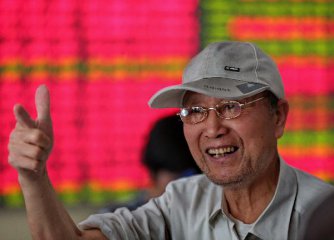
Generals, the saying goes, always fight the last war. Chinese exports held up well in 2018 partly thanks to a vertiginous drop in the currency. President Trump and his trade generals want to make sure China doesn’t use the yuan to gain a competitive advantage again, and are asking for guarantees on currency stability as a part of any trade deal with Beijing.
The yuan has, in fact, been pretty stable recently, even climbing 3% against the dollar since November—and for reasons that go beyond rising odds of a deal. China is unlikely to agree to a long-term binding constraint on the yuan. But current market and economic trends mean keeping it stable against the dollar right now is costing Beijing little.
China’s exports are hurting, but the drop in its imports since late 2018 has been more dramatic, thanks to weakening growth and the sharp fall in oil prices. For most of 2017 and 2018, Chinese import growth was running roughly 10 percentage points faster than growth in exports. Since December, import growth has collapsed, helping shore up China’s trade balance and lending support to the currency.
A more dovish Federal Reserve has helped too. Investors who in November received a measly quarter percentage point of extra yield for buying Chinese government debt over U.S. 10-year government bonds now get twice that. That wider spread—and the sharp rebound in Chinese stocks this year—is helping buttress the currency too, by making yuan assets more attractive.
All of this means that the yuan is strengthening without much direct help from Chinese policy makers. Although China’s foreign reserves dipped briefly last fall when trade tensions were near their height and the yield on 10-year U.S. Treasurys was running above 3%, they have since rebounded. Net foreign-exchange sales by Chinese banks have also disappeared, indicating limited outflow pressure.
The real wild card right now is China’s housing market. In late 2014, a property crash forced the central bank into an aggressive easing cycle that triggered big capital outflows the following year. It also pumped up a historic stock-market bubble, whose ultimate bursting made capital outflow pressure even worse.
China’s property market is once again weakening—and stocks are bubbly. There are good reasons to think that this round of real estate shakiness will be less catastrophic than last time. But if the housing market really crashes again, China’s central bank will almost certainly respond with much more aggressive policy easing. At that point, all bets on the yuan are off.
Source: The Wall Street Journal





















Latest comments